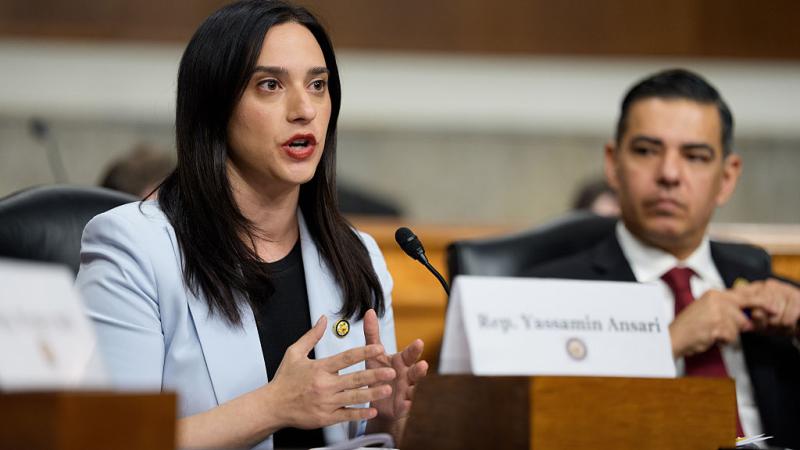Feds quietly prod businesses to use race in hiring, promotion as DEI regimes crumble
Commerce Department's "Business Diversity Principles" don't even acknowledge SCOTUS on affirmative action, attorneys general fume.
The feds appear to be prodding businesses to make race-based personnel decisions as public and private entities, prompted by scrutiny from lawmakers, donors, and public interest law firms, run away from or just rebrand their diversity efforts.
That argument is being made by attorneys general from 19 states who urged the Commerce Department in a public comment to abandon its proposed "Business Diversity Principles," arguing they violate the 14th Amendment and Title VII of the Civil Rights Act.
The signatories, led by Kris Kobach of Kansas, Austin Knudsen of Montana, and Jonathan Skrmetti of Tennessee, also warned the department against trying to sneak in racial discrimination through "superficially race-neutral measures."
Other signatories include Missouri's Andrew Bailey and Louisiana's Jeff Landry, the leaders of a similar effort to halt alleged government collusion with and coercion of social media companies to suppress disfavored narratives, a case the Supreme Court will hear this term.
The AGs marvel that DOC's notice does not even mention the high court's prohibition on racial preferences in college admissions, prompted by Students for Fair Admissions' lawsuits against Harvard and the University of North Carolina, despite the opinion explicitly stating its race-neutral logic applies "in other areas of life."
The department's proposal would open the floodgates of litigation against businesses, the AGs warned. They pointed to diversity, equity, inclusion and accessibility pullbacks by several law firms following lawsuits by the American Alliance for Equal Rights, which like SFFA is led by activist Edward Blum.
"That not even some of the nation’s leading law firms can craft a colorable defense to race-based DEIA efforts speaks volumes about their lack of legal footing," the comment says.
The University of Wisconsin Eau Claire and the state bar are facing new lawsuits alleging discrimination against a white diversity official and similar claims against a "diversity clerkship program" limited to applicants from backgrounds "historically excluded" in legal practice.
The National Institutes of Health evidently didn't want to take the same chance when it received a legal warning letter Nov. 30 pertaining to its Cellular Senescence Network's "underrepresented student program."
The Foundation Against Intolerance and Racism told NIH the research internship's eligibility criteria excluded whites and Asians by the agency's own definition, violating not only the 14th Amendment and Civil Rights Act but also NIH's nondiscrimination policy.
NIH has since removed "underrepresented" from the internship page and now "encourage[s] individuals of all backgrounds to apply," FAIR notified supporters on Thursday, though the page still emphasizes the agency wants applicants from "underrepresented racial and ethnic groups."
The agency even took down its "underrepresented" definition page sometime after Dec. 13, which was linked in FAIR's letter from two weeks earlier. It now redirects to NIH's diversity portal.
NIH apparently took down the application page at least briefly in mid-December as well. It now asks applicants for their race or ethnicity but does not require an answer. NIH didn't answer queries Monday for an explanation.
Even before hedge fund magnate Bill Ackman set the template for major donors to demand their alma maters dismantle their DEIA regimes, which the Harvard alum blamed for campus tolerance of antisemitism, public colleges were backpedaling in response to state action.
University of Utah President Taylor Randall told administrators in a missive late Friday, obtained by Deseret News, that "all hiring units at the university should discontinue the use of any type of diversity statements or similar practices."
He cited the state Board of Higher Education's statement that it's working with "all Utah colleges and universities to wind down the use of such statements in hiring processes," as well as "recent statements made by elected leaders" such as Utah Gov. Spencer Cox, who favors a ban on such requirements, which he called "bordering on evil."
A new Texas law that bans both DEIA offices and hiring statements (SB 17) and took effect Jan. 1 has driven some Lone Star State public institutions to launch similar offices for "belonging," "engagement" and "citizenship."
DOC's notice was published in the Federal Register on Nov. 29, and public comments were originally due Friday, when the AGs filed theirs, an unusually short window made even tighter by lobbyists' annual exodus from D.C. for Christmas and New Year's celebrations.
Former Department of Education lawyer and serial Freedom of Information Act filer Hans Bader, who most recently sought to surface anti-white discrimination complaints against the Equal Employment Opportunity Commission, told Just the News he didn't know about the proceeding.
"Occasionally, courts have struck down regulations when the comment period was insufficient," he wrote in an email. "Depending on the complexity of a regulation, courts sometimes require 60 days or more for the comment period to be adequate."
A "withdrawn" Dec. 21 notice on the regulatory docket says the deadline was extended to Feb. 2 and that nine comments have been received as of 11:59 p.m. Eastern Sunday, but doesn't post any of them. Just the News couldn't find any other comments in internet searches for the docket number.
Public affairs officer Valerie Keys didn't answer queries Monday seeking the filed comments or explanation for the original short deadline.
The proceeding is intended to implement the Biden administration's 2021 and 2023 executive orders on "advancing racial equity and support for underserved communities," the notice says.
It plans to formalize best practices in the private sector related to DEIA, consisting of six "pillars": executive leadership, organizational strategy, workforce development, human resources, community investment and business opportunities.
The AGs objected to the proposal's promotion of a 2020 McKinsey & Co. report on diversity that states companies should "strive to meet diversity targets in their long-term workforce plans" if they want to "advance toward a true meritocracy."
They oppose DOC's call for businesses to implement "clear strategies to increase diversity among the organization's executive ranks," for leaders to "model equitable and inclusive behavior" with the help of "DEIA professionals," and to hold leaders "accountable through performance evaluations and compensation."
The proposal's recommendation to use "demographic data across all levels and departments" follows the illegal but common practice among large employers "from Airbnb, to Google, to Netflix, to Uber" in using "fine-tuned racial tracking in recruitment, hiring, and promotion," the comment says.
"Make no mistake: Express racial quotas have never been lawful" even before the SFFA ruling, the AGs said.
They cited oral argument before the Supreme Court last month in an employment discrimination case, in which Assistant to the Solicitor General Aimee Brown told the justices: "Congress has this bona fide occupational qualification standard if there is a business necessity, but Congress expressly did not include race in that context."
For DOC's principles to pass constitutional muster, they must "clarify that employers must at a minimum use non-race-based measures of diversity like socioeconomic status, educational background, and geography," or otherwise the feds will promote "harmful racial stereotypes" and get them sued, the comment says.
The Facts Inside Our Reporter's Notebook
Videos
Links
- public comment
- "Business Diversity Principles,"
- case the Supreme Court will hear
- high court's prohibition on racial preferences
- pullbacks by several law firms
- discrimination against a white diversity official
- "diversity clerkship program" limited to applicants
- legal warning letter Nov. 30
- Cellular Senescence Network's "underrepresented student program
- internship page
- FAIR notified supporters
- took down its "underrepresented" definition page
- NIH apparently took down the application page
- Bill Ackman set the template for major donors
- Deseret News
- Texas law that bans both DEIA offices and hiring statements
- "belonging,"
- "engagement" and "citizenship."
- Federal Register Nov. 29
- anti-white discrimination complaints against the Equal Employment Opportunity Commission
- "withdrawn" Dec. 21 notice
- 2020 McKinsey & Co. report
- Aimee Brown told the justices













